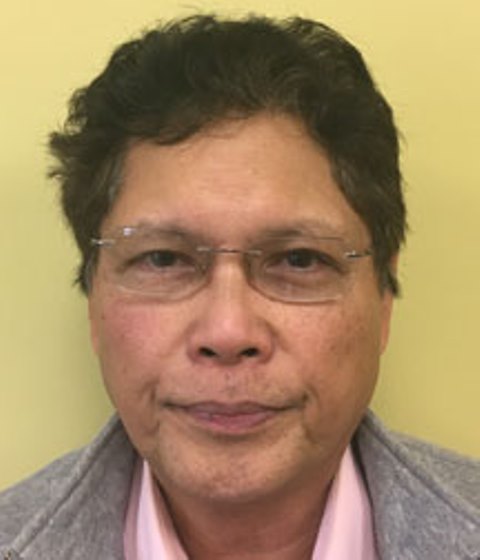CLEARFIELD – Medical experts testified for the commonwealth and defense Wednesday during the third day of trial for a DuBois doctor accused of over-prescribing medications.
In January of 2018, Henry G. Dela Torre, 70, was charged with two felony counts each of administration of controlled substance by practitioner and submitting claim or referring improper service.
Dela Torre was also charged with two misdemeanor counts of giving controlled substance to dependent person and recklessly endangering another person.
The charges stem from an investigation into the fatal overdose of one of his patients, Rachel Shumaker, on Aug. 21, 2016 at a Punxsutawney residence.
Local police contacted narcotics agent James Embree with the Attorney General’s Office over Shumaker’s fatal overdose because of the multiple opioid prescriptions at the scene.
These medications were in Rachel Shumaker’s name and had been prescribed to her by Dela Torre, according to previous trial testimony.
On Sept. 30, 2016, her brother, Randal, also a patient of Dela Torre, overdosed. However, he was administered two doses of Narcan and recovered to his normal state.
After the second overdose, Embree was contacted again, and the investigation was turned over to narcotics agents with the Pennsylvania Attorney General’s Office, Diversion Unit.
On Wednesday morning, testimony continued from Dr. Stephen Thomas, the commonwealth’s pain management and drug addiction expert.
As part of the criminal investigation into Dela Torre’s prescribing practices, Thomas reviewed all the medical records for patients, Rachel and Randal Shumaker.
He said Rachel Shumaker was warned by Dela Torre about the risks of taking medications like Suboxone and Klonopin together, yet he prescribed both drugs to her.
He said during a visit in September of 2015, Dela Torre changed Rachel Shumaker’s prescription from Klonopin to Valium because she was already abusing Valium.
This change, he said, didn’t really serve any “legitimate purpose” because it was likely she’d just continue to take the two medications together.
Thomas testified that after testing positive for Suboxone, Klonopin and Valium, Dela Torre repeatedly warned Rachel Shumaker of the risks of the Valium/Klonopin drug combination and noted her medication consumption was “out of control.”
Valium had not been prescribed by Dela Torre before this, and was illicit each and every time she tested positive for the drug. “He gave in to her addictive use,” Thomas said.
He said Dela Torre had Rachel Shumaker start treatment with Suboxone for her opioid addiction in March of 2016 at Vita Nova, Clearfield. He noted that Dela Torre also treated patients here.
One month later, he said Rachel Shumaker was discharged from the facility because she tested positive for illicit opioids, namely Oxycodone, and needed a more intensive level of care.
Thomas said Dela Torre had her resume treatment for her complaints of severe back pain at his DuBois office, and prescribed her “drug of choice,” Oxycodone.
He went on to say Dela Torre gave an addict a 30-day supply of the drug, putting her further at risk because her medication consumption was already “out of control.”
He said Rachel Shumaker was expected to have surgery for a herniated disk, and Dela Torre should have continued to treat her with Suboxone until it was scheduled, and not with Oxycodone.
Days prior to the date set for her surgery, Thomas said Dela Torre prescribed her a 30-day supply of Fentanyl, a potent synthetic opioid pain medication.
This, Thomas said, wasn’t an appropriate course of treatment, because it could potentially make her less sensitive to the pain medications that would be necessary for her surgery.
He said Dela Torre’s prescribing fell outside the “accepted treatment practices of any responsible segment of the medical community and was not in good faith.”
Thomas determined the same to be the case in Dela Torre’s treatment of Randal Shumaker.
For example, he said drug screenings indicated that Randal Shumaker was not taking several of the medications Dela Torre was prescribing to him yet Dela Torre continued to prescribe them.
Following Thomas’ testimony, the commonwealth rested its case and the defense called its own expert, Dr. Richard L. Rauck of Winston-Salem, N.C., who specializes in pain medicine.
He said Rachel Shumaker was a complex patient for Dela Torre because she presented for treatment of both opioid addiction and chronic pain.
In his professional opinion, he said Dela Torre tried to provide the best possible care for her. He didn’t believe Dela Torre acted in a manner that was “criminally negligent.”
Though he admitted that Dela Torre could have discharged Rachel Shumaker from his practice, he also said she would have just become a problem patient for someone else.
“I believe he didn’t discharge her, because he wanted to help her,” Rauck testified. He added that doctors have to make “judgment calls,” and many probably question their past decisions down the road.
Rauck also believed Dela Torre appropriately treated Randal Shumaker.
Under cross-examination, Rauck admitted Rachel Shumaker was a high-risk case because of the combination of drugs she was on throughout her treatment.
And while a patient can’t be “forced” to do anything, Rauck agreed that Dela Torre could have stopped prescribing medications to Rachel Shumaker and discharged her.
The trial will resume at 9 a.m. Thursday before President Judge Fredric Ammerman in Courtroom No. 1 at the Clearfield County Courthouse. It’s scheduled to run through Friday.




